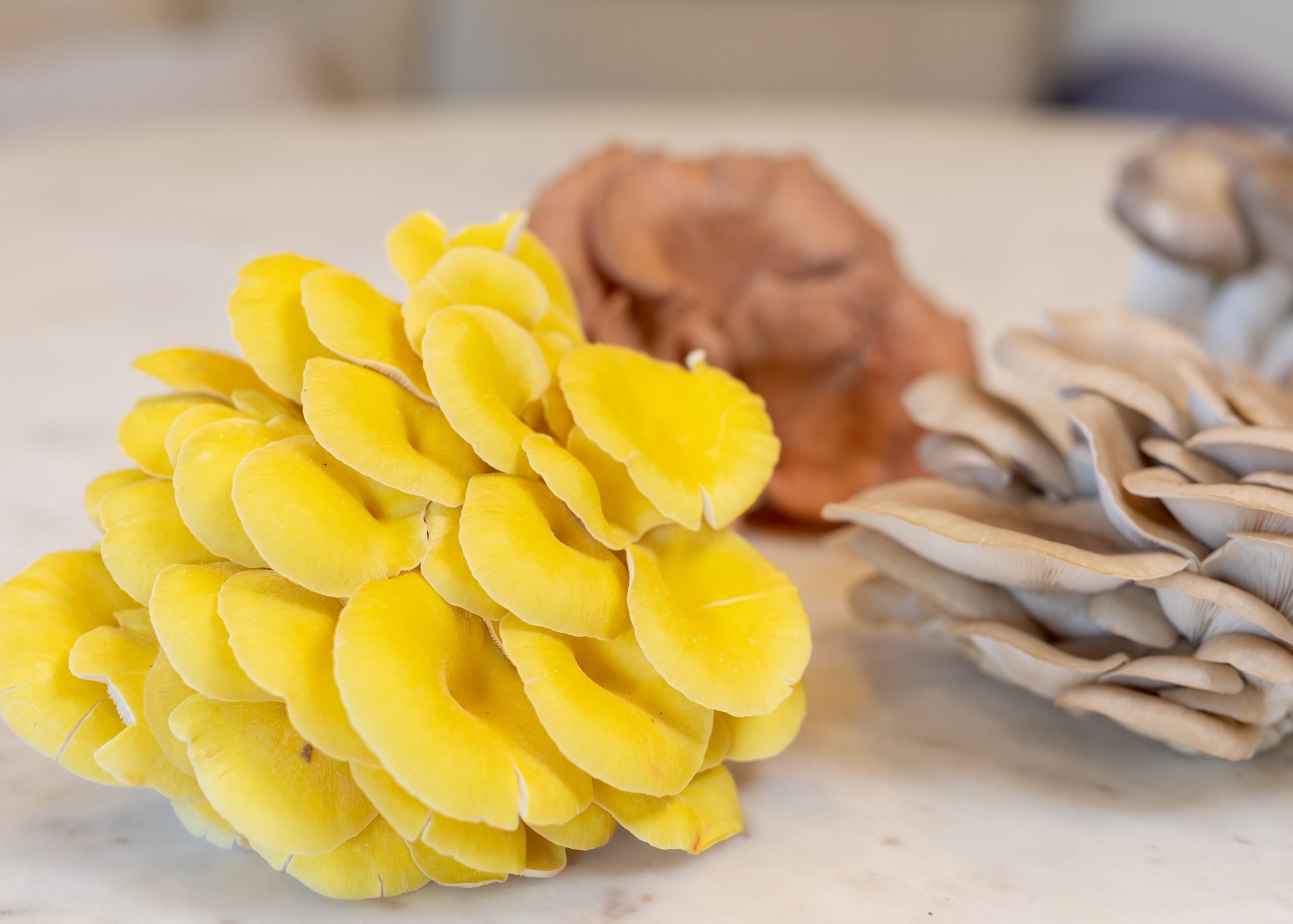- Space is about to host its first crop of mushrooms in a groundbreaking experiment led by Australian company FOODiQ Global
- ‘Mission MushVroom’ will take place on Fram2, the first human spaceflight to explore Earth from a polar orbit launching aboard the SpaceX Falcon 9 rocket as early as March 31, 2025
- The experiment will test if oyster mushrooms can fruit and colonise in microgravity, offering a nutritious, delicious and sustainable food source for long duration missions to the Moon and Mars
- NASA has recognised food and nutrition as the 11th Civil Space Shortfall priority of over 180 priorities, underscoring the importance of Mission MushVroom in pioneering edible mushrooms in space for sustainable food and bioregenerative life support systems
- Research from space food and nutrition can also help feed the growing global population of 10 billion by 2050
Australian company FOODiQ Global is making history by attempting to grow mushrooms in space for the first time. The groundbreaking experiment will be taking place on the upcoming Fram2 mission targeted to launch aboard the SpaceX Falcon 9 rocket as early as March 31, 2025.
Dubbed ‘Mission MushVroom’, the experiment will have astronauts monitor how oyster mushrooms grow in microgravity, providing critical proof that they can successfully fruit in space and serve as a nutritious, delicious, and sustainable food source for long-duration missions to the Moon, Mars, and beyond.
Food and nutrition are a key challenge for exploration missions, with NASA ranking it as the 11th Civil Space Shortfall priority out of more than 180. This underscores the importance of Mission MushVroom in advancing sustainable and nutritious space food systems.
Leading the experiment is Australian scientist, Dr Flávia Fayet-Moore, CEO of FOODiQ Global and a renowned space nutritionist.
“Mushrooms are the perfect space crop1,” says Dr Flávia. “Oyster mushrooms rapidly grow in small spaces, doubling in size daily, and are packed with a rich nutrient profile. Uniquely, they produce 100% of astronauts’ daily dose of vitamin D when exposed to UV light, potentially replacing one of the key supplements currently given to them on the International Space Station.
“In space, food often tastes bland due to altered taste perception and the need for a low-sodium diet to help counteract the negative effects of microgravity on bone health. Mushrooms are rich in umami flavour, being one of the only tastes that remains strong in space.
“Oyster mushrooms are also highly resilient, scalable, and capable of growing using 100% of the inedible plant waste, and even cotton t-shirts in their growth medium,” Dr Flávia adds. “Space food research has already revolutionised our global food supply and will continue to help feed a growing global population of 10 billion by 20502,” Dr. Flávia adds.
https://search.informit.org/doi/10.3316/informit.T2024102300017090201482928
The mushrooms will be provided by Australian biotechnology company lifecykel, known for its pioneering work in sustainable fungi cultivation.
Assigned as the astronaut to lead the experiment while in space is Australian polar adventurer and guide Eric Philips who will become the first person to fly to orbit under the Australian flag.
“The research team will prepare the oyster mushroom substrate block with pins, and I will monitor how the fruiting bodies grow, documenting development rate, signs of contamination, and various other properties. As an advocate for exploration, this is an exciting opportunity to push the boundaries and play a role in creating sustainable food solutions for space – something I never imagined I would explore!”
Mission MushVroom Co-Investigator Ralph Fritsche brings unparalleled expertise, leveraging his experience as NASA’s former Space Crop Production/Exploration Food Systems Project Manager and lead Subject Matter Expert for NASA’s Deep Space Food Challenge.
“Successfully growing edible mushrooms in space represents a significant milestone for space exploration and sustainable nutrition,” says Fritsche.
“Mission MushVroom plays a crucial role in advancing sustainable space food production for longduration missions—such as journeys to Mars—and offers valuable insights that can enhance global food security here on Earth. It really is groundbreaking.”
Launching from Launch Complex 39A at NASA’s Kennedy Space Center in Florida, Fram2 is the first human spaceflight to orbit Earth’s polar regions. The three-day mission features a four-person crew that will conduct various research experiments to push the boundaries of exploration of Earth and space.
About
Dr Flávia Fayet-Moore
- “Dr Fláv” is an Australian scientist, space nutritionist and the CEO and Founder of FOODiQ Global
- She has been researching the nutritional, culinary and health benefits of mushrooms for the past 6 years and has become an expert on the topic in Australia
- As an Alumna of the International Space University, Dr Flav is pioneering research on leveraging mushrooms as a nutritional, culinary and agricultural solution in deep space missions, with her research presented at the International Astronautical Congress in Milan, 2024.
- Full credentials and bio
FOODiQ Global
- As a global leader in the translation of food and nutrition science, FOODiQ empowers people and organisations with food and nutrition information that is backed by science
- As an Australian company with global reach, FOODiQ leads the market with quality research, communication, and education in the food and nutrition space. More information here
Lifecykel
- A global leader in growing and extracting edible and functional mushrooms for over 10 years, with facilities across the world, including Australia, the U.S., and India. More information here
1 Fayet-Moore, F. (2024). Mushroom Missions: Pioneering nutritional, culinary and agricultural solutions for deep space exploration https://iafastro.directory/iac/archive/browse/IAC-24/B3/7/84943/
2 Fayet-Moore, F. (2024). Future foods: How space will feed our future. Food Australia, 76(4), 12–13.
This release was originally published through FOODiQ Global on 26 March 2025.


